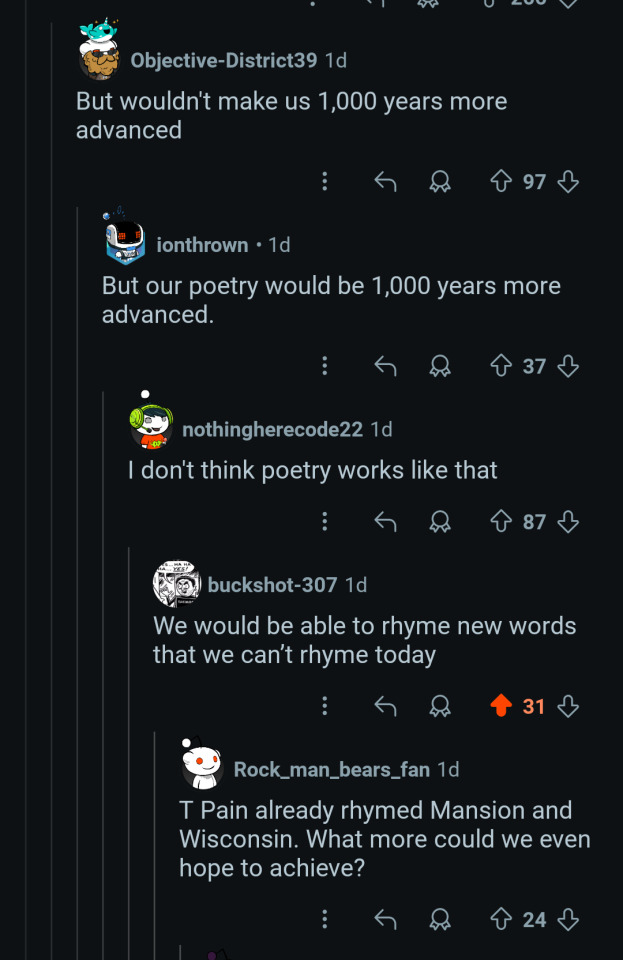#library history
Explore tagged Tumblr posts
Text
Writing an annotated bibliography like, "Hey, professor, I know three of these resources are by the same guy. But believe me when I say my boy Vicente is one of like 4 people actually writing and doing research about this. Please give me an A."
3 notes
·
View notes
Text
Celebrating Historical Black Librarians and Art Curators: Shaping Culture, History, and Society
March is Women’s History Month, a time to honor the remarkable women who’ve shaped history in profound ways. This month, we turn our attention to the incredible legacy of Black women who have worked tirelessly in the fields of librarianship and art curation. These women, often operating in the face of systemic racism and cultural exclusion, have preserved knowledge, brought cultural awareness to…

View On WordPress
#African American heritage#archival work#art curators of color#Belle de Costa Greene#Black excellence#Black librarians#Black women in history#Black women in the arts#Blu Moon Fiction#cultural preservation#hidden figures in history#historical art curation#J.P. Morgan Library#knowledge preservation#legacy building#library history#museum curators#passing the torch#What&039;s Your Story#Women’s History Month
3 notes
·
View notes
Note
I’ve always been curious, why isn’t Hammond part of the lc library system? I’ve tried googling it and have yet to find an answer.
— a citizen of Highland
Ah, to answer this very interesting question, we need a bit of a history lesson! Are you sitting comfortably?
Our story begins not with Hammond or LCPL, but with Gary Public Library.
So, back in 1952, Gary Public Library was providing service to far more than just Gary, and had been since the early 1900s. They covered the smaller towns and rural areas of Lake County, like Highland and Cedar Lake. In 1952 it was decided that these outlying regions should have their own library board and budget to look after their interests and Lake County Public Library began - sort of.
Back in those days, we were still contracting with Gary Public Library to provide all services and were sort of a sub-library of Gary. The boards met jointly and all expenditures of Lake County funds had to be approved by the Gary Public Library.
This continued until funding became... complicated. And somewhat contentious. Though the Lake County library was still paying Gary Public Library for their services, the contract needed to be renegotiated as Lake County grew and developed. Questions of where taxpayer money should go, and whether Gary taxpayers should subsidize Lake County library services outside of Gary arose.
On January 1, 1959, Lake County Public Library officially split from Gary Public Library and became an independent library system serving the not-Gary communities that Gary Public Library used to serve.
Now, you'll note I haven't mentioned Hammond in all this. The reason Lake County Public Library formed in the first place was in order to provide library services to the small towns and rural areas in Lake County that didn't have their own libraries.
Hammond, of course, is a city and they have always had their own public library, older even than Gary Public Library. They had no reason to join the little conglomerate of rural areas and small towns - and certainly no reason to become embroiled in the complicated funding and budgeting acrobatics being carried out in the neighboring communities.
Lake County today of course looks a lot different than it did in the 50s, and the name of our library - initially chosen to indicate that we served communities 'out in the county' (aka, not cities) - now is a little confusing. There are actually 7 library districts in Lake County now and each of the others has their own reasons for remaining separate. Most of these reasons can probably be summed up in one word - taxes. Hammond residents don't pay taxes toward LCPL, and vice versa. The same goes for all of the different library districts.
Of course, we're all on great terms today and a card with any of the libraries in Lake County does get you access to most of the physical collection here at LCPL - and your LCPL card can do the same at the other libraries!
#ah this is long#the fatal librarian need to explain things in detail etc etc#lcpl reply#library history#lake county indiana
11 notes
·
View notes
Text
World’s oldest libraries
The World’s Oldest Libraries Article Title: World’s oldest libraries Author: Nicky Sinha Francis Genres: Article A heaven of books When your world revolves around books, all you can think of a cozy beautiful place only for your books and you. For others, it’s point to laugh, but for you it’s your passion and your own personal space where you can escape from your stress and pain that you go…

View On WordPress
#Ancient Archives Library Origins#Ancient Knowledge Centers Heritage Libraries#Ancient Libraries#Antiquarian Libraries Oldest Manuscripts#Classical Libraries#Classical Manuscripts Ancient Literary Collections#Cultural Heritage Libraries Ancient Text Repositories#Early Library Collections#Historical Libraries#Legacy Libraries#Library History#Library Preservation#Medieval Libraries#Pre-modern Libraries
2 notes
·
View notes
Text
Libraries Around the World: Xi'an, China
In 627 CE, under the reign of Chinese emperor Tàizōng of Táng (Chinese: 唐太宗) we know a library was established which housed a whopping 54,000 rolls.
#libraries around the world#libraryland#librarylife#china#chinese libraries#Did You Know#library history#chinese history
2 notes
·
View notes
Text



All of this is correct. No notes.
33K notes
·
View notes
Text

Knowledge Wins - Public Library Books are Free, American Library Association (1918)
#american library association#vintage poster#war propaganda#posters#books & libraries#library#books#books and reading#public libraries#public library books#public library#ww1 history#ww1 art#wwi history#wwi art#ww1#wwi era#ww1 era#world war 1#world war one#first world war#1st world war#illustration#vintage
9K notes
·
View notes
Text






all those layers of silence upon silence - donna tartt
#dark acadamia quotes#dark academism#dark acamedia#dark acadamia aesthetic#dark academia#dark aesthetic#dark academic aesthetic#dark academic#academia#academia aesthetic#light academism#light acadamia aesthetic#light acamedia#light academia#books & libraries#booklr#books and reading#books#reading#bookworm#aesthetic#pinterest#moodboard#donna tartt#the secret history#sylvia plath#poetry#dark moodboard#dark academia moodboard#pictures from pinterest
5K notes
·
View notes
Text
This is why many librarians (who know their library history) get strained smiles or worse on their faces when the name of Melville Dewey comes up.
He was a sexual harasser, an antisemite, and basically an all-around shitheel, and he was substantially responsible for the abovementioned hiring practices.

Why aren't we talking about the real reason male college enrollment is dropping? (Celeste Davis, Oct 6 2024)
"White flight is a term that describes how white people move out of neighborhoods when more people of color move in.
White flight is especially common when minority populations become the majority. That neighborhood then declines in value.
Male flight describes a similar phenomenon when large numbers of females enter a profession, group, hobby or industry—the men leave. That industry is then devalued.
Take veterinary school for example:
In 1969 almost all veterinary students were male at 89%.
By 1987, male enrollment was equal to female at 50%.
By 2009, male enrollment in veterinary schools had plummeted to 22.4%
A sociologist studying gender in veterinary schools, Dr. Anne Lincoln says that in an attempt to describe this drastic drop in male enrollment, many keep pointing to financial reasons like the debt-to-income ratio or the high cost of schooling.
But Lincoln’s research found that “men and women are equally affected by tuition and salaries.”
Her research shows that the reason fewer men are enrolling in veterinary school boils down to one factor: the number of women in the classroom.
For every 1% increase in the proportion of women in the student body, 1.7 fewer men applied.
One more woman applying was a greater deterrent than $1000 in extra tuition! (…)
Since males had dominated these professions for centuries, you would think they would leave slowly, hesitantly or maybe linger at 40%, 35%, 30%, but that’s not what happens.
Once the tipping point reaches majority female- the men flee. And boy do they flee!
It’s a slippery slope. When the number of women hits 60% the men who are there make a swift exit and other men stop joining.
Morty Schapiro, economist and former president of Northwestern University has noticed this trend when studying college enrollment numbers across universities:
“There’s a cliff you fall off once you become 60/40 female/male. It then becomes exponentially more difficult to recruit men.”
Now we’ve reached that 60% point of no return for colleges.
As we’ve seen with teachers, nurses and interior design, once an institution is majority female, the public perception of its value plummets.
Scanning through Reddit and Quora threads, many men seem to be in agreement - college is stupid and unnecessary.
A waste of time and money. You’re much better off going into the trades, a tech boot camp or becoming an entrepreneur. No need for college. (…)
When mostly men went to college? Prestigious. Aspirational. Important.
Now that mostly women go to college? Unnecessary. De-valued. A bad choice. (…)
School is now feminine. College is feminine. And rule #1 if you want to safely navigate this world as a man? Avoid the feminine.
But we don’t seem to want to talk about that."
32K notes
·
View notes
Text
A jewel box of a book ✨ This 19th century French sales sample book contains very thin metal ornaments, made of foil over card. These would have been used like fancy sequins, and adorned everything from cards to clothes! They’re sometimes called Dresdens after the town in Germany where many were made. I know I say this a lot, but this book really floored me 🤩 Part of col. 838 in the Winterthur Library 📚
14K notes
·
View notes
Text

"As soon as I discovered that comics were made by people, I wanted to be one of those people, even if I didn't have anywhere near their skill set. And I still don't think I have that skill set. But the language of comics is exciting to me... Comics are a very democratic medium, and you don't need much more than a pencil and paper, as a minimum." —Art Spiegelman speaking to Hyperallergic Discover the Pulitzer Prize–winning classic that is as as relevant and impactful today as it was forty years ago.
#booklr#studyblr#comic books#history#maus#art spiegelman#banned books#libraries#books#graphic novels#comicblr#book recommendations#booksbooksbooks#reading#currently reading
4K notes
·
View notes
Text
Hooray for everything said here, three cheers for public libraries, and three cheers for Ao3, which is an archive, and one beautifully run and catalogued. Two thoughts:
* If there were an archive of tags for the books found in public libraries 🤩 (Such as #every unhappy family is unhappy in its own way, or #I love Big Brother, both of which I expect would fit a host of books, not just the originals) Now, of course, that archive is librarians, but sometimes we forget, and few of us have actually read all the books.
* When I was in library college, late 1990s in Sweden, there was very much a discussion about literary quality and library acquisitions. It was centered around several popular crime writers of the time, whose books were crap as novels, but everyone wanted to read them, each for a short window of time. And the libraries had a limited budget, and also the mandate and mission to stock books you couldn't get everywhere, that were important to widen the culture available, or that actually would last the test of time. Do we buy 50 copies of Shit Prose Murders Women Gruesomely or do we buy 50 books that will widen people's horizons and people will still ask for 20 years from now? The side for not stocking Shit Prose at all was quite strong at the time. - Part of the history is also that Swedish public libraries grew out of the Labour and Temperance movements: their stock should be improving, bettering. - We could pile the issue of subversive literature on top of this but a) Swedish 20th century was mainly leftist and subversive was often bettering and b) that's a whole other tangent but this is long enough for tonight isn't it
Just saw a tweet like "REAL libraries check for quality!" as some kinda gotcha at AO3?? But I'm a librarian, so... heads up that "quality checks," AKA "weeding" or "pulling," means looking for damaged books or ones that haven't circulated in a few years to clear up shelf space. We don't Quality Check for if the library books have nontoxic romance or good grammar. :U I assure you every library in your area has absolute ABOMINATIONS of bad storytelling as well as your favorite pop lit.
#library history#libraries#don't get a librarian started#librarians#archives#public libraries#ao3#just a q really
36K notes
·
View notes
Text








#alıntı#kitap#reading#landsccape#booklover#books#culture#home lifestyle#home decor#books and libraries#literature#photography#wiriting#currently reading#travel#landscape#vintage#history#arte#arhitecture#trees#view#scenery#bookworm#romance quotes#edebiyat#studyblr#studyspo#tumblarians#artwork
11K notes
·
View notes
Text
jason: you don’t even know what my favorite book is, how could you even stand to call yourself my father if you don’t know me anymore!?
bruce: jay, your favorite is pride and —
tim: the velveteen rabbit.
jason: … i’ve had like two conversations with you outside of murder attempts, how do you know that?
tim: im not an amateur, i took my baby stalker duties very seriously!
#the answer as to how tim knows is that he read jason’s library checkout history#the velveteen rabbit is SO jason todd coded and you can pry that statement out of my cold dead hands#dc#robin#jason todd#red hood#bruce wayne#batman#tim drake#red robin#batfam#the velveteen rabbit
12K notes
·
View notes
Text
I don't see enough people mourning over the slow death of physical media. And I don't just mean TV shows, video games, or movies--which don't even get me started about how we don't really 'own' anything anymore. It includes notes, journals, and letters to one another...so much of our history is lost when we lose a password, a website goes down, a file/hardware is corrupted, or a platform disappears. History that doesn't seem important until you no longer have access to it. Physical media does a lot for memory recall. How many memories will we lose because we don't have something tangible to tie it back to? Something to hold in our hands and stir up those memories we thought were once lost? Sometimes I wonder what the difference between burning a book and losing access to physical media is when someone can pull the plug and remove your access so easily.
#physical media#history#art history#anthropology#anthropocene#digital archives#digital media#books and libraries#support libraries#libraries#book banning#book burning#fahrenheit 451#Fahrenheit 194#late night thoughts#memories#memory#past vs present vs future#vent post#something to think about#writing#academia#academia aesthetic#dark academia#book community#in this essay i will#banned books
5K notes
·
View notes
Text








#alıntı#kitap#reading#landsccape#booklover#books#culture#home lifestyle#books and libraries#literature#photography#writing#currently reading#ctiy#travel#landscape#vintage#history#arte#arhitecture#trees#view#scenery#bookworm#romance quotes#edebiyat#studyblr#studyspo#tumblarians#spilled thoughts
17K notes
·
View notes